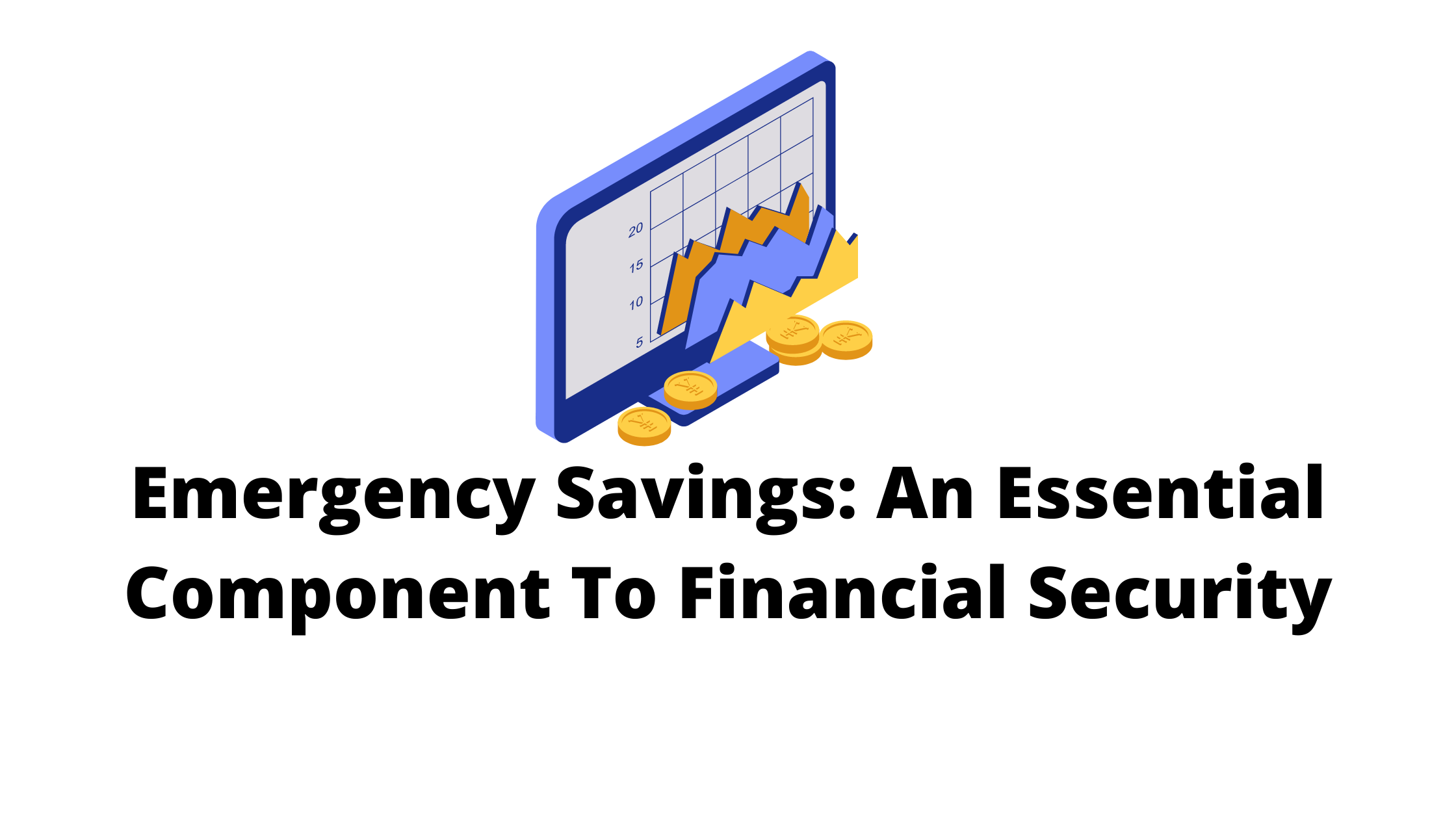Emergency Savings: An Essential Component To Financial Security
What do you do when something arises that requires access to a large sum of cash? What happens when your refrigerator stops working, the plumbing malfunctions, you lose your job, or even worse, another pandemic emerges? Do you have the money to cover the costs without abandoning other financial obligations? If you haven’t thought about it before, now is the time to start. When emergencies and unforeseen events come up (and they will), you need to be prepared.
When financially compromising situations occur, unpreparedness could leave you broke or drowning in debt. It’s not uncommon for people to skip paying other bills, charge their credit cards, or take out loans to tackle an unexpected problem. Although this might provide temporary relief, it ends up leading to economic hardship that could last years. That’s why an emergency savings account should be a priority. As the name implies, it’s a savings account exclusively for emergencies.
Benefits Of Having An Emergency Fund
When you have a financial reserve, you avoid a lot of financial and emotional hardship. Below is a closer look at the advantages of starting an emergency fund.
- Money To Cover Expenses – The most obvious reason to have emergency savings is to have access to cash to cover unexpected expenses.
- Avoid Ruining Relationships – It’s common for people in a jam to ask friends and family to assist them. While it’s nice to have someone you can count on, taking money from them can put a strain on your relationship, especially if you don’t repay on time. Having a fund of your own can prevent you from having to cross this bridge.
- Maintaining Monthly Expenses – Another common mistake people make to cover emergency costs is to skip paying other bills. This concept only increases your debt in the long run. A nest egg enables you to cover your household expenses while taking care of an emergency.
- Prevent Increasing Debt – When you charge things to your credit card or take out a loan, it’s your responsibility to repay them. If your budget is already tight, it could be difficult to repay in a timely fashion. Ultimately, you end up paying more in interest and fees. Some people even default on loans and max out their credit cards and face other collection expenses.
- Peace of Mind – The physical and emotional stress of dealing with financial emergencies is overwhelming. If you have an emergency savings fund, you avoid this stress providing you with peace of mind.
Saving For An Emergency Fund
Hopefully, the above advantages persuaded you to start an emergency savings account. Ideally, you should set aside about three to six month’s worth of expenses. If you’re wondering how you can accomplish this goal easier, consider these suggestions below.
- Sell Your Car – If you have a second car or a vehicle you haven’t utilized in a while, you could turn it into cash. An online search of how to sell my car for cash today would direct you to various platforms willing to pay top dollar for your ride.
- Have A Yard Sale – You may not have a car to sell, but there are likely other things around your house that you could get money for. Gather any clothes, shoes, electronics, household appliances, and furniture you don’t want and plan a yard sale. Depending on the quality of your belongings, you could receive several hundred or thousand dollars in a day.
- Adopt A Frugal Lifestyle – Living below your means can save you a lot of money without compromising your happiness. When you eliminate or reduce unnecessary expenses, you create an opportunity to put more money into savings.
You never know when something could come up that requires more money than you have access to. These unforeseen circumstances are often emergencies that you can’t afford to ignore or put off. Though there are solutions like asking loved ones, charging your credit card, or taking out a loan, these options are financially and emotionally challenging. An emergency savings fund would essentially reduce these obstacles. By using methods such as those described above, you can generate a lump sum of cash to keep you afloat when you’re in a jam.

